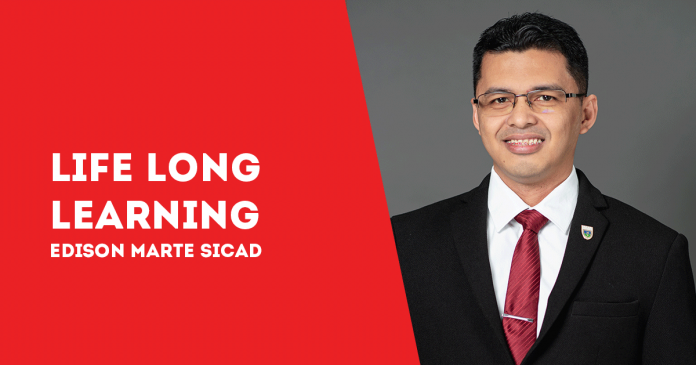
BY EDISON MARTE SICAD
“In the big lie there is always a certain force of credibility; because the broad masses of a nation are always more easily corrupted in the deeper strata of their emotional nature than consciously or voluntarily; and thus in the primitive simplicity of their minds they more readily fall victims to the big lie than the small lie, since they themselves often tell small lies in little matters but would be ashamed to resort to large-scale falsehoods…” — Adolf Hitler, Mein Kampf
IN TELLING the truth, you may be considered as a traitor — especially if you have benefited from the lies you have revealed. There is no redemption among criminals. The mindset is crab mentality to a fault. Hence, in some instances, loyalty to someone or to something may only be a selfish manifestation for personal gain — and survival.
Admittedly, based on experience or willful intent, we can present a lie to others as if it is the truth. This is a very powerful discovery: that you can lie and make others believe that it is true. This is an ability — or attribute — that is truly human that, I guess, not even God can perform.
Sometimes, we lie without really intending to hurt others. We tell a lie because we are not comfortable in telling the truth. We tell a lie as a defense mechanism: our immediate response when caught off guard. And of course, we tell a lie to avoid hurting our loved ones.
“Hurt him if you love him.” This was the advice — in the movie Moulin Rouge — given to the woman to save the man she loves.
On the other side, truth can be bad news to others. And truth can be ugly to the liar. To a criminal, the truth will not set him or her free. Although we may argue that honesty or acceptance of guilt has its spiritual value and a testament that justice is served, but still, in this case, it was not an honest act.
In another way, we can aim to practice in not only telling the truth, but equally important — if not more — to also avoid telling lies. But I have never met a person who has not told a lie.
Small lies could be forgivable. We can humor about our age, weight, and money concerns. But in the natural order of things, small lies can lead to big lies.
“Logically speaking, big lies are consequences of successful small lies.”
Government lies can become official acts that can technically become moot and academic. The government can manipulate and entertain us with showbiz politics. Those in power write the dialogues. They direct and rehearse the characters to act out the drama with believable lines of confrontations and shocking revelations. Politicians can create and present a plot to make it appear that those in power are the protagonists.
And we, the masses — especially the voters — are the intended spectators. And why not. Most of us are already convinced that we have contributed to nation-building by clicking a national program. Most of us already feel empowered and assured since we are made involved in the decision-making process because we are allowed to comment in YouTube or Facebook.
“In the past, bribery, or the giving of money, is done under the table. Then some did it over the table for faster transactions. Today, we now give including the table.”
But lies are not only monopolized by our beloved public servants. We are peppered with lies as well in our respective work environment. In fact, we never lose our appetite for lying. And why should we? Everyone else is doing it. It’s better to join so as not to be left behind.
And this is the unkindest cut of all: No One Must Be Left Behind. Grades? Awards? Dissertations? Promotions? Appointments? These achievements can also become successful lies.
I am actually wondering if there is a job or work left in this world where lying will guarantee failure, that lying is a career suicide. But so far, unfortunately, lying is the game we play where the rule is to tell as many lies as possible without causing trouble. To tell as many lies as possible until we get what we want — or avoid what we hate. To tell as many lies as possible until we get caught — then lie by saying that we didn’t lie.
I think a midlife crisis is nothing more than a stage in a person’s life where the man or woman can no longer stomach dishonest work with successful living. The soul rebels the tyranny of the body. The mind becomes the jail cell, and the heart becomes a hopeless proof of life as one’s existence is hounded by the harpies. We can’t hide forever for there is no place to hide.
But maybe, we can cover ourselves with successful lies. And pretend until our time runs out.
“If I tell you that I am a liar. Will you believe me?”/PN







